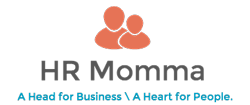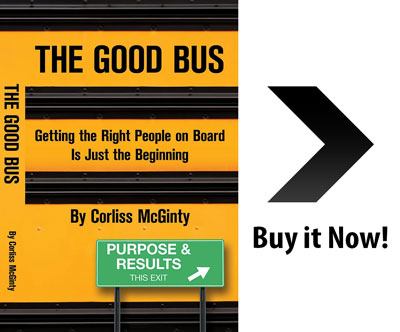The Truth About Dishonesty
David Herdlinger and his co-founder Joan Walsh of Kashbox Coaching wrote this month about dishonesty. I met David at a Quarterly get-together of RAC associates in Pa. It kind of caught me because I’ve been following Dan Ariely’s blog on behavioral economics and he has been talking about the same thing. (you can sign up to be part of his research on his site).
Hmmmm…. what’s going on here? Is this a sign I need to write about this? I say yes!
With all the news lately about ponzi schemes, etc. we see leaders who play loose with rules and regulations for their own selfish gain. Yet can we say that we’re impeccably honest ourselves? Ariely has a new book out (he writes in his spare time from writing for the WSJ), The Honest Truth About Dishonesty, Dan explores how we lie to everyone, especially ourselves!
It’s shocking! We do!
“Morality, like art, means drawing a line somewhere.” – Oscar Wilde
Join me as we learn from both Kashbox and Ariely on how we deceive.
From Kashbox Coaching
Forbes Magazine calls a recent financial scandal the shocking indictment of the culture of banks; This time it involves unethical, illegal fixing of financial markets by the great names of banking. Barclays has admitted guilt in conspiring with the Royal Bank of Scotland, UBS, Deutsche Bank, Citigroup.
These bankers have been caught manipulating the sacred market of the London Interbank Offering Rate, known as LIBOR – the rate the major banks of the UK and Europe charge to borrow funds from each other.
And, yes, that’s the same rate your home mortgage rate is based on. It’s no wonder a Gallup poll shows only 21% of Americans have a high confidence in US banks, the lowest figure in the past 30 years.
All this comes a few years after the financial crisis of 2008 which brought about a collapse in stock markets, mortgages, and a global recession we will feel for years to come.
These financial leaders feel they can be dishonest and get away with it. Perhaps it’s not only our leaders who play loose with rules and regulations. It’s time we look at ourselves and how each of us engages in dishonest behaviors.
Is Everyone Dishonest?
There’s a different kind of dishonesty that goes on with just about everybody, not just a few bad apples. We fudge expense and time reports, fake doctor’s appointments, and claim we’re ill when out on the golf course. We then cheat on our scores. We use our children as excuses for things we don’t want to do. Some of us even cheat on our state and federal income taxes.
In an effort to discover the truth about dishonesty, Duke Professor and best-selling author Dan Ariely has published a book exploring this subject and revealing what social scientists have discovered.
In The Truth About Dishonesty: How We Lie to Everyone – Especially Ourselves, Ariely asks:
- Is dishonesty restricted to a “few bad apples,” or is it widespread?
- What factors curb dishonesty?
- What are the psychological and environmental forces that influence honesty in our daily lives?
- How do others influence us when it comes to right and wrong?
Everyone engages in dishonesty, some in small ways, some more than others. Most of it involves white lies and exaggerations, and most is perpetrated against faceless institutions. We tell ourselves it’s harmless and find good reasons to justify it.
A Simple Model of Rational Crime
If we all have the potential to be somewhat criminal, it is crucially important that we first understand how dishonesty operates, and then figure out ways to contain and control this aspect of our nature. The prevailing notion of cheating, according to Nobel laureate Gary Becker of the University of Chicago, says that people commit crimes based on a rational analysis of a situation.
In the Simple Model of Rational Crime (SMORC), we seek our own advantage as we make our way through the world; we weigh the costs versus the benefits of an act (without consideration of right or wrong), comparing the possible positive and negative outcomes. This model is, however, imperfect and incomplete. It doesn’t say anything about moral conscious, self-image, or emotional irrationality. We need to figure out what really causes people to cheat, and in what circumstances they will or won’t be dishonest.
The Fudge Factors
There is a delicate balance between the contradictory desires to maintain a positive self-image and to benefit from cheating. No one likes to think of him or herself as a cheat. Each of us has a limit to how much we can cheat before it becomes sinful. It has to do with our self-image. How much can we fudge before we feel guilty?
Usually we allow a certain amount of flexibility before our self-image is affected. To illustrate, there’s an old joke. When 8-year-old Jimmy comes home with a note saying he was caught stealing a pencil, his father is furious. He lectures him about stealing. Finally, to conclude, he tells him that if he needed a pencil he could have simply asked him. “You know very well that I can bring you dozens of pencils from work.”
According to experiments, we are more ready and willing to steal something that does not explicitly reference monetary value. While we would steal paper and pencils at work, we hesitate to take money from the cash box. Some actions slide by our personal moral radar more easily than others that carry a red flag.
People Like Being Honest
Simply being reminded of ethical standards encourages more honorable behavior. People are less likely to steal or cheat if they’re asked to read the Ten Commandments first, even when they are atheists. Reading or signing an honor code or pledge also minimizes cheating. People want to be honest and easily respond to moral reminders in situations that may tempt dishonesty. If you change the way people are able to rationalize away their actions, then they become more honest.
Without reminders, we get comfortable about rationalizing our behaviors in favor of obtaining desired outcomes by any means. We are influenced to be more honest in the presence of others who might see or hear us being dishonest. Unless, of course, others are also cheating, in which case, we are influenced towards dishonesty. With moral reminders and other people, we are less comfortable with misbehaving and cheating. Our fudge factors shrink.
A World of Possibilities
When you consider the range of undesirable behaviors in the world from this standpoint – defaulting on promises, cheating on taxes and expense reports, canceling appointments – there’s a lot more to honesty and dishonesty than rational thinking. It’s not always possible to have people read or sign a moral pledge. We can, however, influence our colleagues and friends when we communicate the value of doing the right things. And in doing so, we also influence ourselves to act in honest ways.


